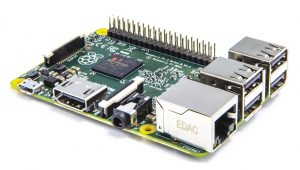This week we interviewed Devashish Bhageerutty, a young electronics engineer. This electronics enthusiast looks back on his career and explains what his job entails.
Devashish, you are an electronic engineer, what does your job involve?
I work at Absolute Zero ApS, a Danish company, in the 360 degree camera business. They are a very ambitious young company that wants to create a foolproof 360 degree camera that is truly affordable, allowing all 360 enthusiasts to produce high quality content.

I am in charge of the development of the internal structure of the device, from the electronics to the software of different levels. My work includes making electronic schematics, designing circuit boards, writing programs for drivers and APIs on different OS, selecting and collaborating with other companies on outsourced projects.
What was your training to do this job?
I started my engineering training with the Mechatronics Engineering course at the University of Mauritius. After working for a year, I moved to England to specialize in Embedded Systems. I got hired during my studies, moving to Denmark a few days after finishing my major. I admit that this lack of experience is often hard to deal with, but I make up for it by being proactive, and by having confidence in myself, and in everything I’ve learned so far.

You are about to go to work in Denmark, where you did your last internship. But, are there any opportunities for electronic engineers in the Indian Ocean region?
Of course! The Indian Ocean is vast and we immediately think of the countless opportunities that the big economies like Australia, Singapore, India and South Africa can offer. However, keep in mind that the term “electronics engineer” is just as broad. Electronics engineers can be found in many fields such as telecommunication, robotics, manufacturing, acoustics, medical instruments, etc., the list is long. Even if in Mauritius, we are a bit limited, with remunerations not very encouraging, the opportunities are there. The question you have to ask is what you are really looking for in a career.
Would you like to come back to work in Mauritius after your international experience?
Most likely. The aim of my international experience is to quench my thirst for discovery, in terms of work and new technologies, but also in culture, language, gastronomy and new encounters. It’s a bit difficult to meet a 21 year old who already employs 14 people in his startup in Mauritius and this kind of meeting really makes you think! I would still like to return to my native island after a few years to try and make a contribution to the country.
Do you think that your job is a future job in the region with the advent of digital?
Yes, especially with the IoT boom in the last few years, this looks promising to me. We live in an increasingly connected world, and projects of various sizes come and go quite quickly. From small gadgets to the creation of Smart Cities, we are always innovating to improve the quality of life. Even if logistics are sometimes a problem, it should also be noted that with globalization, it is becoming more conceivable to create a startup in Mauritius in electronics, and I think this is a very important factor for progress.

What advice would you give to local engineering students who want to specialize in electronics?
Communication is essential. I believe this advice applies not only to electronics engineers, but to all engineers in general. Engineers are almost always working with people from different departments (it’s a team effort!) and sometimes from different nationalities, I myself work with a cosmopolitan team.
And often, the most difficult thing to do is not to solve a technical problem, but to get your ideas or explain a technical problem to people who don’t necessarily have the same jargon. It’s not just with the spoken word, but also with the written word. The reports and emails never stop. So don’t take your communication module lightly!
Electronics are constantly evolving. If you compare the electronics engineering field to other engineering fields, you will soon realize that while we learn the basics during our university studies, we must always keep in touch with the progress of new technologies. Today, it is easy to buy relatively powerful, cheap, credit card sized systems (Raspberry Pi, Arduino). I strongly recommend that students invest some of their pocket money and free time to try to do interesting projects. In this way, they will learn to put their theoretical knowledge into practice and master it. Theory alone does not make you a good engineer!

In conclusion, I would say that we must be ambitious. It’s the perfect time to be. Have a dream, a motivation and a vision that comes from you. These elements should not be built by the people around you. Advice will not always be in good taste, obstacles will discourage you, but believe in yourself and don’t forget to “think outside the box”!




